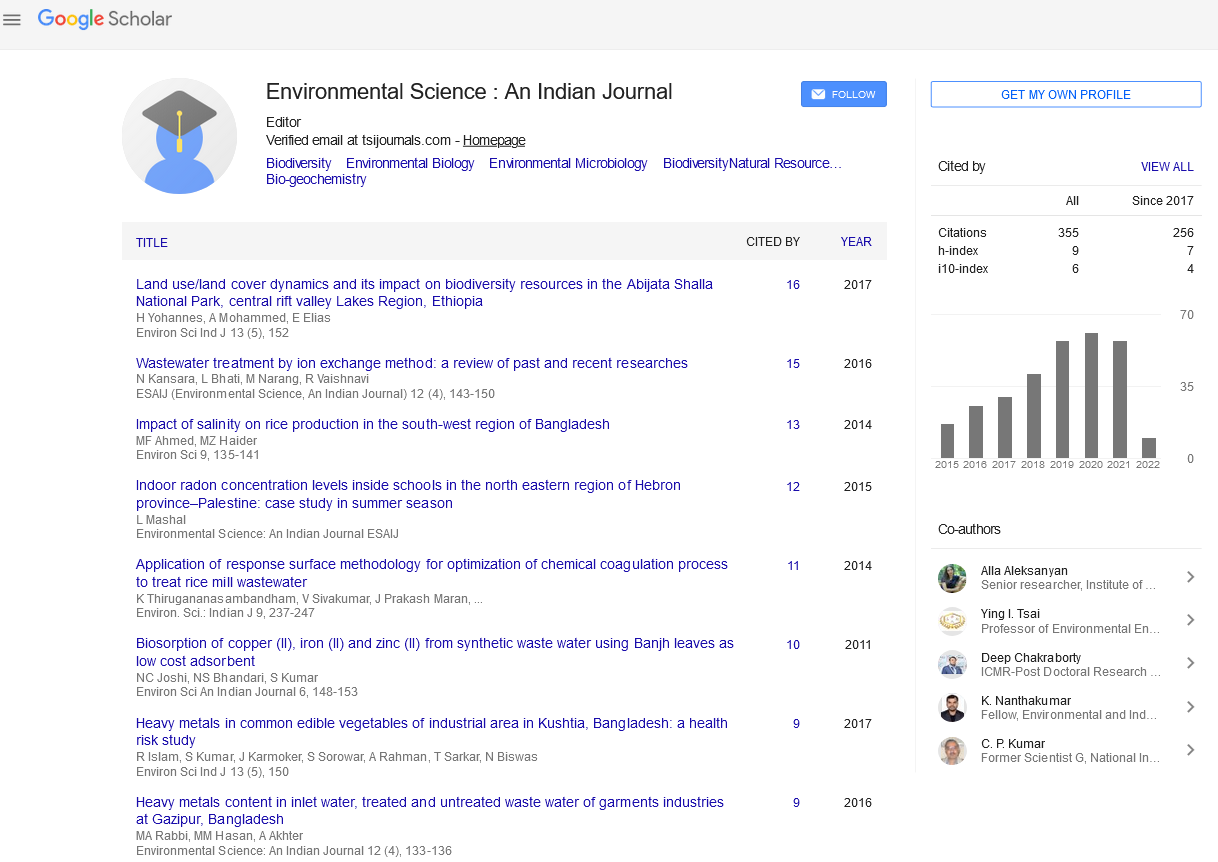Abstract
Water requirements of chamomile and origanum plants under North Sinai conditions
Author(s): M.I.Abd-El-Rahman, Evon K.RizkThis work is an attempt to clarify the effect of organic-inorganic fertilizers and water management of sandy soils on improving water use efficiency of some aromatic and medicinal plants (Camomile and Origanum) under daily drip irrigation, with emitters adjusted to 4 l/hour under desert conditions at the El-Sheikh Zuwayid region, North Sinai, Egypt. The study was conducted in split-plot design with three replicates. The treatments include three daily irrigation times (¼ hour = 1 liter/plant; ½ hour = 2 liter/plant; ¾ hour = 3 liter/plant) and the use of three types of fertilizers (organic, chemical andmixed organic and chemical). The resultswere analyzed statistically revealing an increase in camomile and origanum plants yield of the irrigated daily½ hour, fertilized by mixed fertilizer. The rate of 1 liter/day (¼ hr/ day) seems to cause the accumulation of salts in the root zone, while the 3 liter/day (¾ hr/day) treatment induced the leaching of the fertilizers from the rhizosphere, both reducing crop growth. Also, an increase in water use efficiency and water economy of camomile and origanum plants by decreasing irrigation time and use ofmixed fertilizers.Moreover, a significant decrease in water consumptive use of camomile and origanum plants, was achieved by decreasing the irrigation time and chemical fertilizer. Depending on the detection of the water consumption for all treatments and economical assessment, the rate of 1 liter/day (¼ hr/day) and organic manures yielded the highest profitable return of camomile and origanum plants. The empirical averages of the seasonalKc obtained fromthe experiment, for the plants, were 0.63 and 0.36 for the camomile and origanum, respectively.

